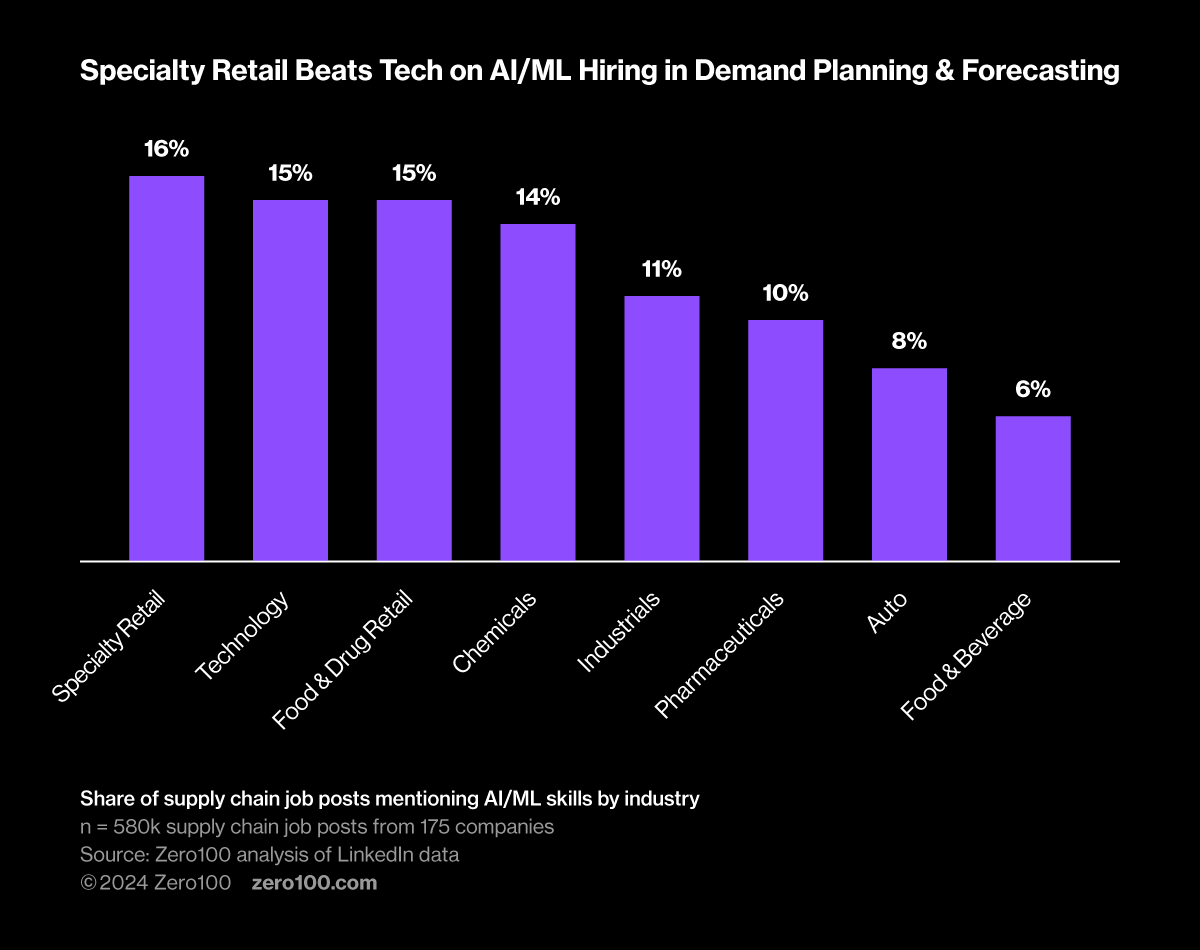

Leaders Hire for Digital Skills, Not Industry Experience
An industry-by-industry breakdown of supply chain recruiting shows the distribution of talent across the ecosystem, indicating where certain skill set/function pairings may be more mature. Hiring within only certain industries restricts your talent pool as well as your ability to innovate, and the data shows relevant skills are present in places you might not expect.
Key Takeaways
-
1
Different industries prioritize different digital skills when recruiting in order to bolster the productivity of functional teams working on unique priority areas and initiatives. Within demand and forecasting roles, AI/ML is most highly sought after by specialty retailers (16% of roles mention the skill set), food & drug retailers most covet analytics (37% of roles), and automation is most requested by energy companies (16% of roles).
-
2
Tech is not always ahead on digital hiring. Within demand planning and forecasting positions, tech companies mention digital skills in 43% of job posts, beaten out by food & drug retailers, who list digital skills in 47% of job posts. This suggests that digital talent can be found across industries – and recruiting with blinders on could be limiting your potential to find great talent.
One of the key tenets for talent strategy laid out by our co-founder Kevin O’Marah in a recent Zero100 report is to source from everywhere. A frequently used application criteria – “x years of industry expertise” – can end up acting as a barrier to making this tenet a reality – limiting the talent pool by filtering out prospective applicants before they have a chance to demonstrate their applicable skills. An industry-by-industry breakdown of supply chain recruiting paints a picture of the distribution of talent across the ecosystem and indicates where certain skill set/function pairings may be more mature. The data provides a basis on which organizations can speak more broadly to all talent, which can be used as a guide on how to recruit more cross-industry rather than only from direct competition.
Given the differing operations and objectives of one industry vs another, it is no surprise that digital talent needs to vary. Although one might expect tech companies to be leaders in hiring for digital skills across their supply chain, as they should be able to leverage product expertise in their supply chain processes, this is not the case.
Looking specifically at demand planning and forecasting positions, for example, tech companies are beaten out by food & drug retailers when it comes to hiring for digital skills. They are beaten by the likes of Walgreens (71% of job posts mention digital skills) and Walmart (62%). Walgreens mentions analytics in 69% of supply chain job posts, automation in 52%, AI/ML in 42%, big data in 42%, and software engineering in 42%. One of their job descriptions reads: “collaborates with business clients, product managers, data engineers, front-end developers, and other team members to build and deploy scalable ML/AI-infused applications, or other data-centric products that incorporate constrained optimization, statistical theory, large-scale forecasting, etc.” Looking more broadly, on average, nearly half of food & drug retailer jobs require digital skills, as compared to an average of 42% of roles at tech companies. The need for digital skills spans industries – therefore looking for skills outside your industry could be a key talent unlock.

Two behemoth companies known for their digital prowess, Apple and Amazon, have demonstrated their willingness (or even eagerness) to look outside their industry for talent. A typical Amazon job post specifies, “Industry experience in: retail, f&b, military, manufacturing, automotive, biotech, electronics, energy, instrumentation, machinery, defense/aerospace, medical, cosmetics, production or distribution environments,” and Apple, despite being a tech company, has been known to poach talent from the fashion and luxury goods industry, with the goal of enhancing the “lifestyle” the brand promotes.
The question is: which is more important for your supply chain of the future – experience in your industry or mastery of crucial future-focused skill sets and a willingness to learn? We think the latter since restricting yourself to an industry silo limits not only your talent pool but also your ability to innovate – and this is why Zero100 facilitates one-on-one conversations between supply chain leaders across the world’s largest organizations.
To see a different data cut or to dig deeper into this topic, reach out to our Head of Research Analytics, Cody Stack, at Cody.Stack@zero100.com.
Methodology
Zero100’s proprietary data and analytics are a combined effort between our data scientists and research analysts. We provide data-first insights matched with our own research-backed points of view and bring this analysis to life via real-world case examples being led by supply chain practitioners today.
For this study, we analyzed SBTi data from 177 supply chain organizations and 2.4 million LinkedIn job posts from 100 B2C companies. Our analysis categorizes listings based on mentions of specific digital skills within job titles and descriptions.